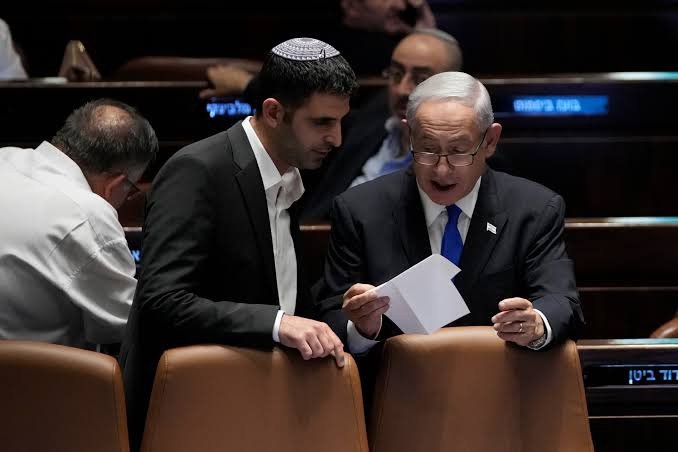Israel parliament advances contentious judicial overhaul amidst protests

Israel’s parliament has approved a key clause of a controversial bill aimed at limiting the powers of the court. The proposed changes, introduced by Prime Minister Benjamin Netanyahu’s hard-right government, have ignited one of the largest protest movements in the country’s history since their announcement earlier this year.
Week after week, tens of thousands of demonstrators have taken to the streets, calling for an end to the planned overhaul of Israel’s justice system. The proposed reforms have drawn strong opposition domestically and attracted criticism from international sources, including United States President Joe Biden. In response to the mounting pressure, Netanyahu initially declared a pause in March to allow for discussions on the proposals.
However, with the withdrawal of Israel’s main opposition leaders, Yair Lapid and Benny Gantz, from the negotiations, Netanyahu has made a renewed attempt to push the legislation through parliament. Following a tumultuous session, the bill was passed in its first reading by a narrow margin of 64 votes to 56.
Prior to the parliamentary debate, a group of protesters gained entry into the Knesset building, necessitating their removal, while hundreds more demonstrated outside. The bill under consideration seeks to strip the judiciary of its authority to evaluate the “reasonableness” of government decisions, with potential implications for the appointment of ministers.
A notable incident that fueled the reform discussions occurred in January when cabinet member Aryeh Deri, representing the ultra-Orthodox Jewish party Shas, was dismissed by Netanyahu after the Supreme Court intervened. The court’s decision, based on the grounds of “reasonableness,” was related to Deri’s previous conviction for tax evasion.
Among the proposed reforms is an increase in the government’s influence over the appointment of judges. Netanyahu’s coalition government, which includes ultra-Orthodox and extreme-right allies, argues that these changes are necessary to achieve a more balanced distribution of power. However, critics contend that Netanyahu, who is currently facing corruption charges, is attempting to manipulate the overhaul to prevent potential judgments against him. Netanyahu vehemently denies these allegations and rejects any connection between the judicial changes and his own legal situation.
Opponents of the reforms see them as a broader threat to Israeli democracy. Determined to continue their resistance, demonstrators have announced plans for mass protests on Tuesday if the bill on the “reasonableness” clause successfully passes its first reading.
A recent poll conducted by Israel’s public Kan television channel showed that 31 percent of Israelis support the proposed changes, while 43 percent oppose them. In a June interview with The Wall Street Journal, Netanyahu indicated his intention to proceed with the reforms but without the clause that curtails the Supreme Court’s powers. According to the prime minister, adjustments have already been made to the initial proposal, including the removal of an override clause that would have allowed the parliament, known as the Knesset, to overturn Supreme Court decisions with a simple majority.







